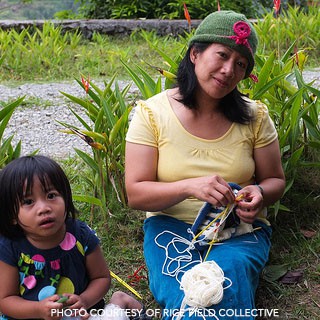By Ralph
It’s starting to sink in. Sustainability in business isn’t simply an economic issue or an environmental issue. Sustainability is a people issue!
In the fashion world for example, the price tag on that fresh new t-shirt from Nordstroms, doesn’t reflect the price paid by the planet: the farmer who grew the cotton under duress of heavy handed world trade negotiations, the worker who sewed the seams after 14 hours at work in a stifling garment factory or the carbon gas emitted in carrying the garment overseas for delivery to US consumers.
A recent New York Times article on ethical fashion states:
New research indicates a growing consumer demand for information about how and where goods are produced. A study last year by professors at the Massachusetts Institute of Technology and Harvard showed that some consumers — even those who were focused on discount prices — were not only willing to pay more, but actually did pay more, for clothes that carried signs about fair-labor practices.
All too often, as societies, we are slow to change or confront challenging problems until tragedy forces us to. The garment factory collapse that killed more than 800 workers in Bangladesh last month has added urgency for brands and retailers to offer more transparency into the origins of their products. Events like this shed a light on the complex supply chain in retailing that make it easier for consumers to justify poor labor practices by pleading ignorance.
For a growing number of entrepreneurs and businesses, triple bottom line practices that address the earth, people, and profitability are becoming the preferred cultural norm.
For social entrepreneurs a values driven approach to business goes further than a behind-the-scenes philosophy motivating the team. Social and environmental messaging lives and breathes as a part of the story uniquely woven into the fabric of a social enterprise’s goods and services.
Goods embodying progressive values as part of their brand story are rewarded in the marketplace by customers who both spend money freely and spread goodwill joyfully as brand ambassadors.
As the market begins to further reward social enterprises, more entrepreneurs are emboldened to take the plunge into unique expressions of their higher purpose. One such company is Rice Field Collective.
Rice Field Collective is a collaboration between knitting teachers and designers based in the U.S. and Europe, with indigenous people from the Ifugao region of the Philippines. Our goal is to use handknitting as a way of generating income for those in danger of being forced out of their ancestral land due to poverty.
CoLab Cooperative is honored to be working with RFC to develop a custom Shopify / WordPress e-commerce integration that allows the collective to weave the story of its mission seamlessly around the products they sell. The time has come for goods and their stories to live as one — in service to all people, the earth, and to economic sustainability for all. CoLab is proud to be helping to lead the way in establishing this standard.
Sound compelling? It is and we encourage you to go hear more about it from the founder of RFC herself.
CoLab couldn’t be more excited by this new collaborative partnership.
